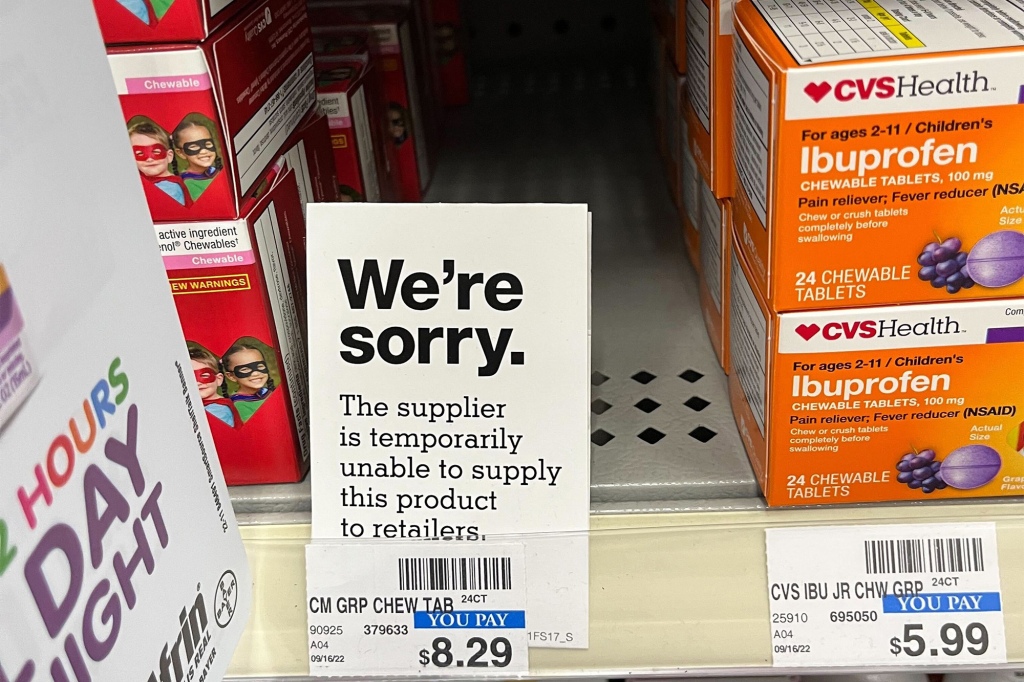Critical drug shortage a threat to national security, congressional report finds
A shortage of critical drugs — including children’s medicine, antibiotics and ADHD medication — could pose a threat to national security, according to a new congressional committee report.
From 2021 to 2022, drug shortages spiked nearly 30%, according to the report published on Wednesday by Democrats on the Senate Homeland Security and Governmental Affairs Committee.
The shortage peaked at the end of last year when 295 different drugs were in short supply — and the shortage is only rising, the report found.
“These shortages have cascading effects on patient care, causing delays in treatment, increasing the risk of medication errors, and requiring the use of less effective alternative treatments,” the report said. “Hospitals have also experienced increased costs, medication waste, and limited staffing capacity to address and remedy shortages.”
The cause for the shortage, the report found, includes economic factors, supply chain issues and “a continued U.S. overreliance on both foreign and geographically concentrated sources for medications and their raw materials.”
“Taken together, these underlying causes not only present serious concerns about providing adequate care to patients, they also represent serious national security risks,” Committee Chairman Gary Peters (D-Mich) said on Wednesday while presenting the report’s findings, NBC reported.

Neither the federal government nor the pharmaceutical industry has the means to access the full supply chain — from raw materials to ready medication to be sold and administered by health care providers.
While the average drug shortage typically lasts about 18 months, there have been 15 critical drugs in short supply for the last decade, with most being injectable medications, according to the report.
Nearly a third of those drugs in short supply are antibiotics.
Peters said that the U.S.’s overreliance on foreign suppliers, especially those in China, “remains an unacceptable national security risk.”
As a result of the shortage, patients have been forced to delay treatment or seek alternative medications.

Peters said that because the federal government lacks oversight over the supply chain and only limited data is exchanged between the government and the pharmaceutical industry, the FDA can’t accurately predict drug shortages, according to NBC.
The committee recommended in its report that Congress require the Department of Defense, Department of Homeland Security and Department of Health and Human Services assess the supply chain for risk of drug shortages that could impact national security.
Read the full article Here


